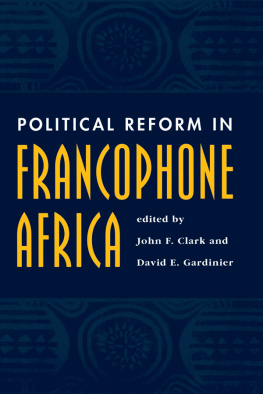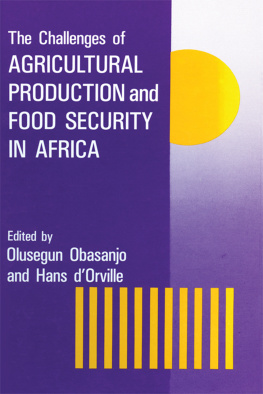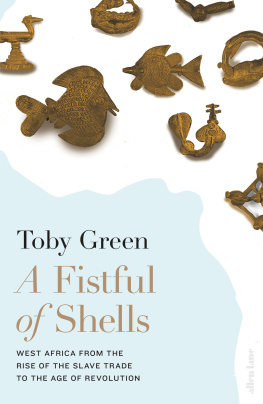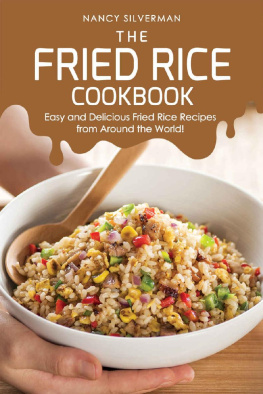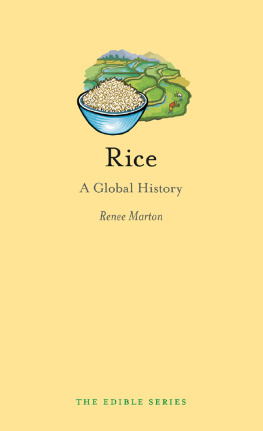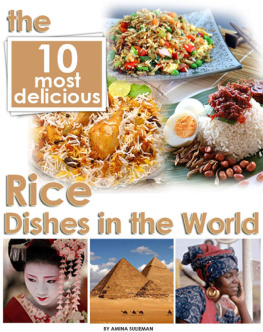First published 2001 by Ashgate Publishing
Reissued 2018 by Routledge
2 Park Square, Milton Park, Abingdon, Oxon 0X14 4RN
711 Third Avenue, New York, NY 10017, USA
Routledge is an imprint of the Taylor & Francis Group, an informa business
Copyright John R. Walsh 2001
All rights reserved. No part of this book may be reprinted or reproduced or utilised in any form or by any electronic, mechanical, or other means, now known or hereafter invented, including photocopying and recording, or in any information storage or retrieval system, without permission in writing from the publishers.
Notice:
Product or corporate names may be trademarks or registered trademarks, and are used only for identification and explanation without intent to infringe.
Publishers Note
The publisher has gone to great lengths to ensure the quality of this reprint but points out that some imperfections in the original copies may be apparent.
Disclaimer
The publisher has made every effort to trace copyright holders and welcomes correspondence from those they have been unable to contact.
A Library of Congress record exists under LC control number: 2001089781
ISBN 13: 978-1-138-72188-3 (hbk)
ISBN 13: 978-1-315-19401-1 (ebk)
My interest in the West Africa Rice Development Association dates from early 1985 when I visited the WARDA field office in St. Louis, Senegal at the mouth of the Senegal River. WARDA was on the itinerary because of its capabilities in research on rice. The rising popularity of rice as a staple food in West Africa and the failure of domestic rice production to meet demand had resulted in the heavy importation of rice. This was a main factor in the balance-of-payments problem plaguing Senegal and other countries in the region.
The application of modern agricultural techniques and technology to rice cultivation was seen as the best hope for improving yields in a key crop in the region. I was on my way upriver to visit irrigated rice perimeters around the village of Bakel in the middle valley of the Senegal where such innovation was being attempted. The projects, underwritten by American and European donor agencies, were designed to help farmers increase production of rice and make it possible for West African country to reduce rice imports.
At the time, a major dam construction project on the Senegal River was nearing completion. The project was intended to promote development of the river valley; a central objective was to control the flow of the river to benefit irrigated agriculture, particularly cultivation of rice. A main drawback was that the rice varieties being used produced poor yields even under irrigated conditions. Much the same was true in wetter areas of West Africa where farmers depended on rainfall in growing their rice crops. The varieties being planted along the Senegal were mostly imported from Asia and had proved vulnerable to the climate, pests and plant diseases of West Africa. The effects of drought in 198384 in the Sahel added urgency to the quest for more productive rice types.
Much depended on WARDA and other agricultural research organizations being able to develop high-yielding varieties of rice that would flourish in the region and help justify expenditures on the dams. In the middle 1980s, however, WARDA was experiencing internal and external difficulties that put its existence in question and certainly made it unlikely that it could achieve the research goals set for it.
WARDA did endure and the following account of the changes it underwent had its origins in a casual conversation in 1995 with the centers research director, Peter Matlon, and a later exchange with its director general, Eugene Terry. What we discussed was the idea of an account of WARDAs recent history in a style less formal than that of regular WARDA publications and that would portray the interplay of science, economics and politics that characterize the operations of international agricultural research centers like WARDA. Important and frequently left out of such discussions are the realities of living and working in a developing country in postcolonial Africa. The upshot was an invitation that enabled me to spend about three weeks in the summer of 1996 at the WARDA headquarters and research station at Bouak, Cte dIvoire. I was given full access to staff at every level and was free to observe the functioning of the center, and with no strings attached.
I am grateful to Eugene Terry for making this venture possible and to him and to Peter Matlon for their patience and candor throughout our lengthy conversations about WARDA both in Bouak and in the United States after they had completed their time at the center. I am indebted to the late David Bell, last of Harvard, for his insight into the early times and troubles of WARDA as I am for his giving me the benefit of his perspective over the years on international development matters. I am obliged to WARDAs current director general, Kanayo Nwanze, for going out of his way to bring me up to date on WARDA and for permission to use WARDA material as illustrations.
I owe my understanding of WARDA and how it works to interviews in Cte dIvoire and the United States. Errors of fact or interpretation are entirely my own. In Washington, early discussions with Gordon MacNeil set me off in the right direction, and, later, Curt Farrar, Dana Dalrymple, Alex McCalla, and Alexander von der Osten, were very helpful, as were Chitti Babu Buyyala, Monty Jones and Thomas Teuscher in Bouak.
Among those who contributed to the project through interviews or in other ways were Soumaoro Bangalee, Rob Bertram, W. Ronnie Coffman, Mike Collinson, Daniel Coyne, Christopher Delgado, Alassane Diallo, Sitapha Diata, Mustapha Gaye, Robert Guei, Nils Hanssens, Jean-Yves Jamin, Dougou Keita, Simplice Kra, Joan MacNeil, Bakary Ouayogode, Thomas Randolph, Lorna Terry, Moctar Toure, Andrew Urquhart, Peter Windmeijer, and Anthony Youdeowei.
Logistical thanks are due WARDA public affairs officer Melissa Anderson for arranging transport and my schedule in Bouak, to CGIAR librarian Danielle Lucca for cheerfully and efficiently retrieving documents and to Cimon Psira, designer, who bore with me in the preparation of the manuscript for publication. Last, unqualified thanks go to my wife, Efthalia, for her encouragement and support in this project and for everything.



